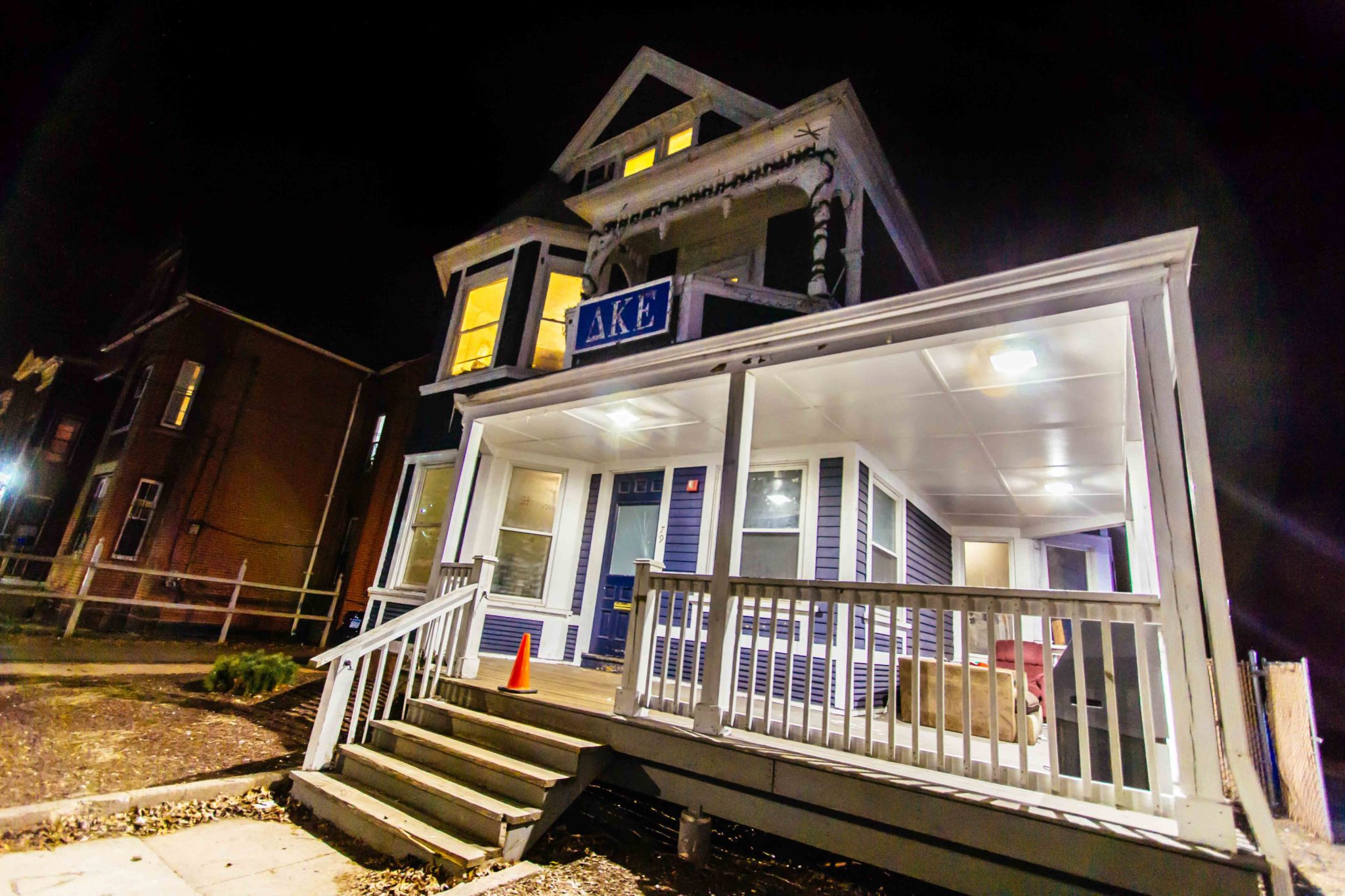
Delta Kappa Epsilon on Friday finalized a report with recommendations designed to foster a safer environment at the chapter, with the major reforms including sober monitors and coed bouncers and bartenders at parties, as well as maximum house occupancy guidelines and water access.
The report, which was drafted by a working group consisting of six DKE members, including the president and vice-president, comes in the wake of revelations of sexual misconduct at DKE, which were published in the News and Business Insider last month. Three weeks ago DKE asked its national organization to investigate its sexual climate after the fraternity was contacted by Business Insider regarding allegations of sexual misconduct by its members. On Jan. 20, the News reported that, late last year, former DKE President Luke Persichetti was suspended from Yale for “penetration without consent” and subsequently expelled from DKE. Last November, in the wake of the Persichetti incident, DKE established the working group to address the issue of sexual misconduct at the fraternity.
The finalized report slightly rewords some of the recommendations included in an early draft that the News published last week and features new suggestions stemming from meetings over the past week between DKE representatives and various groups on campus, including sororities, the Communication and Consent Educators, sports teams, the Women’s Center and Unite Against Sexual Assault at Yale. The new recommendations include the establishment of a fraternity Facebook page with anonymous feedback forms, the public posting of the phone numbers and names of sober monitors at parties, and the appointment of a new hospitality chair in the fraternity who will help organize nonalcoholic social activities such as video gaming.
“After three months of work and over twenty meetings with students, campus organizations and University administrators, we are releasing the final draft of our report into how we can make our space a safer and more welcoming environment for everyone in Yale’s community,” a DKE spokesman told the News. “We will also honor our promise and extend an open invitation to our social events to everyone who worked with us during this process, enabling them to see for themselves if change has truly been implemented. We hope that these individuals will take us up on that offer to hold us accountable in our efforts to improve our organization.”
At a recent chapter meeting, the spokesman added, DKE’s membership voted unanimously to increase dues for the semester in order to fund the reforms outlined in the report.
Assistant Dean of Student Affairs Melanie Boyd told the News that, over the past few months, DKE members have met with staff from the Office of Gender and Campus Culture and the Alcohol and Other Drugs Harm Reduction Initiative, as well as some individual CCEs, to help the fraternity “reflect and improve upon their group dynamics.”
“We’ll talk with individual students and group representatives and often recommend workshops tailored to specific group needs,” Boyd said. “Some of the most popular include trainings on advanced bystander intervention, TIPS bartender certification, party hosting, group values, supporting friends and group transitions.”
Campus reactions to DKE’s recommendations have ranged from cautious optimism to outright skepticism.
Ruiyan Wang ’21, public relations coordinator for the Yale Women’s Center and a staff reporter for the News, said the organization hopes DKE and all student organizations on campus have sustained conversations with their members about the climate of their social spaces but did not comment directly on the content of the recommendations.
In an interview with the News about an earlier draft of the report, co-founder of Unite Against Sexual Assault at Yale Helen Price ’18 noted that even though the recommendations “look pretty well thought out and solid” and represent a step in the right direction, they will mean nothing if not consistently and properly implemented.
Members of Engender, a student group that advocates for social spaces at Yale to become gender integrated, expressed doubt that DKE would effectively implement the proposed changes.
“How can we trust DKE to host ‘safe’ and ‘warm’ social events when sober monitoring is undertaken by the fraternity’s own members, ‘maximum occupancy enforcement’ may serve the subjective purpose of rejecting any undesirables, and regulations designed to police ‘disrespectful language’ and underage drinking are wholly unrealistic?” Engender said in a statement to the News.
In the preface to the finalized report, DKE President Nicholas Hardy ’18 and Vice President Andrew Johnson ’18 say they are “well aware that true change has been promised but not delivered in the past” but express hope that implementing the changes outlined in the report will help the fraternity regain the trust of the Yale community.
Students interviewed by the News agreed that DKE needs to become more transparent and implement measures to create a safer environment for guests in order to revive its reputation on campus.
Travorn Mahadeo ’20 suggested DKE should open more of its parties to the entire school so that students hold it accountable as it implements the proposed changes. People are more likely to report misconduct or other problems if they are not friends of fraternity members, Mahadeo said.
Raajii Daniel ’21 said members of DKE should work to ensure that brothers are not just “scouting or looking for the next person to hook up with” at parties. Kira Sze ’21 said that providing visible access to water, as is outlined in the report, and offering food at parties would contribute to making the environment more welcoming.
DKE was founded at Yale in 1844.
Britton O’Daly | britton.odaly@yale.edu
Alice Park | alice.park@yale.edu







